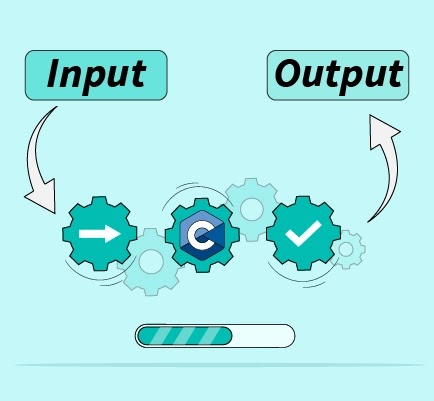Understanding Variables and Data Types in C Language: A Detailed Guide
In the world of programming, variables and data types form the backbone of data manipulation and storage. The C programming language, known for its efficiency and versatility, provides a robust system for handling variables and data types. This blog will delve into the details of variables and data types in C, offering examples and explanations to help you master these fundamental concepts.
What is a Variable in C?
A variable in C is a storage location in memory that holds a value. Each variable is associated with a specific data type, which determines what kind of value it can store and how much space it occupies in memory. Variables are essential for storing data that can be manipulated and used throughout a program.
Key Points About Variables:
- Naming: Variables must have unique names and follow certain rules (e.g., they must start with a letter or an underscore and cannot include spaces).
- Scope: The scope of a variable determines where in the program it can be accessed. Variables can be local to a function or global across the entire program.
- Lifetime: The lifetime of a variable is the period during which it exists in memory. Local variables exist only during the execution of the function in which they are declared, while global variables persist throughout the program’s execution.
Data Types in C
Data types in C define the type of data a variable can hold. Each data type has its own set of operations and storage requirements. C provides several built-in data types, which can be broadly categorized into basic, derived, and user-defined types.
Basic Data Types
Integer Types (
int): Used to store whole numbers.int: The standard integer type. Size can vary depending on the system (typically 4 bytes).Example:
int age = 25;
Floating-Point Types (
float,double): Used to store real numbers (numbers with a fractional part).float: Single-precision floating-point type (typically 4 bytes).double: Double-precision floating-point type (typically 8 bytes).Example:
float temperature = 36.6; double distance = 12345.6789;
Character Type (
char): Used to store single characters.char: Typically 1 byte, used to store characters according to ASCII values.Example:
char grade = 'A';
Modifiers
Modifiers can be used with basic data types to alter their size or range. Common modifiers include:
shortandlong: Alter the size of integer types.signedandunsigned: Alter the range of values that can be stored (whether negative values are allowed).
Examples:
short int smallNumber = 10;
long int largeNumber = 1000000;
unsigned int positiveNumber = 50;
Derived Data Types
Derived data types are built from the basic data types:
Arrays: Collections of variables of the same type.
Example:
int scores[5] = {90, 85, 88, 92, 78};
Pointers: Variables that store memory addresses of other variables.
Example:
int *ptr; int value = 10; ptr = &value;
Structures: Groups different types of data into a single unit.
Example:
struct Person { char name[50]; int age; }; struct Person individual = {"Alice", 30};
Unions: Allow storing different data types in the same memory location.
Example:
union Data { int i; float f; char str[20]; }; union Data data; data.i = 10;
User-Defined Data Types
Enums: Define a set of named integer constants.
Example:
enum Weekdays { SUNDAY, MONDAY, TUESDAY, WEDNESDAY, THURSDAY, FRIDAY, SATURDAY }; enum Weekdays today = MONDAY;
Typedefs: Create new names for existing types to simplify code.
Example:
typedef unsigned long ulong; ulong largeNumber = 1234567890;
Practical Examples
Example 1: Basic Variable Usage
#include <stdio.h>
int main() {
int age = 20; // Integer variable
float height = 5.9; // Floating-point variable
char initial = 'J'; // Character variable
printf("Age: %d\n", age);
printf("Height: %.1f\n", height);
printf("Initial: %c\n", initial);
return 0;
}
Example 2: Using Arrays and Pointers
#include <stdio.h>
int main() {
int numbers[3] = {10, 20, 30}; // Array of integers
int *ptr = numbers; // Pointer to an integer
printf("First number: %d\n", numbers[0]);
printf("Second number via pointer: %d\n", *(ptr + 1));
return 0;
}
Example 3: Structures and Unions
#include <stdio.h>
struct Employee {
char name[50];
int id;
};
union Data {
int integer;
float decimal;
char text[20];
};
int main() {
struct Employee emp = {"John Doe", 101};
union Data data;
data.integer = 12345;
printf("Employee Name: %s\n", emp.name);
printf("Employee ID: %d\n", emp.id);
printf("Union Integer: %d\n", data.integer);
return 0;
}
Conclusion
Understanding variables and data types in C is crucial for effective programming. Variables serve as the building blocks of data manipulation, while data types define the nature and limits of the data stored. By mastering these concepts, you gain the ability to write more efficient and robust programs. Practice with different data types and experiment with variables to build a strong foundation in C programming. Happy coding!




.jpg)
0 Comments